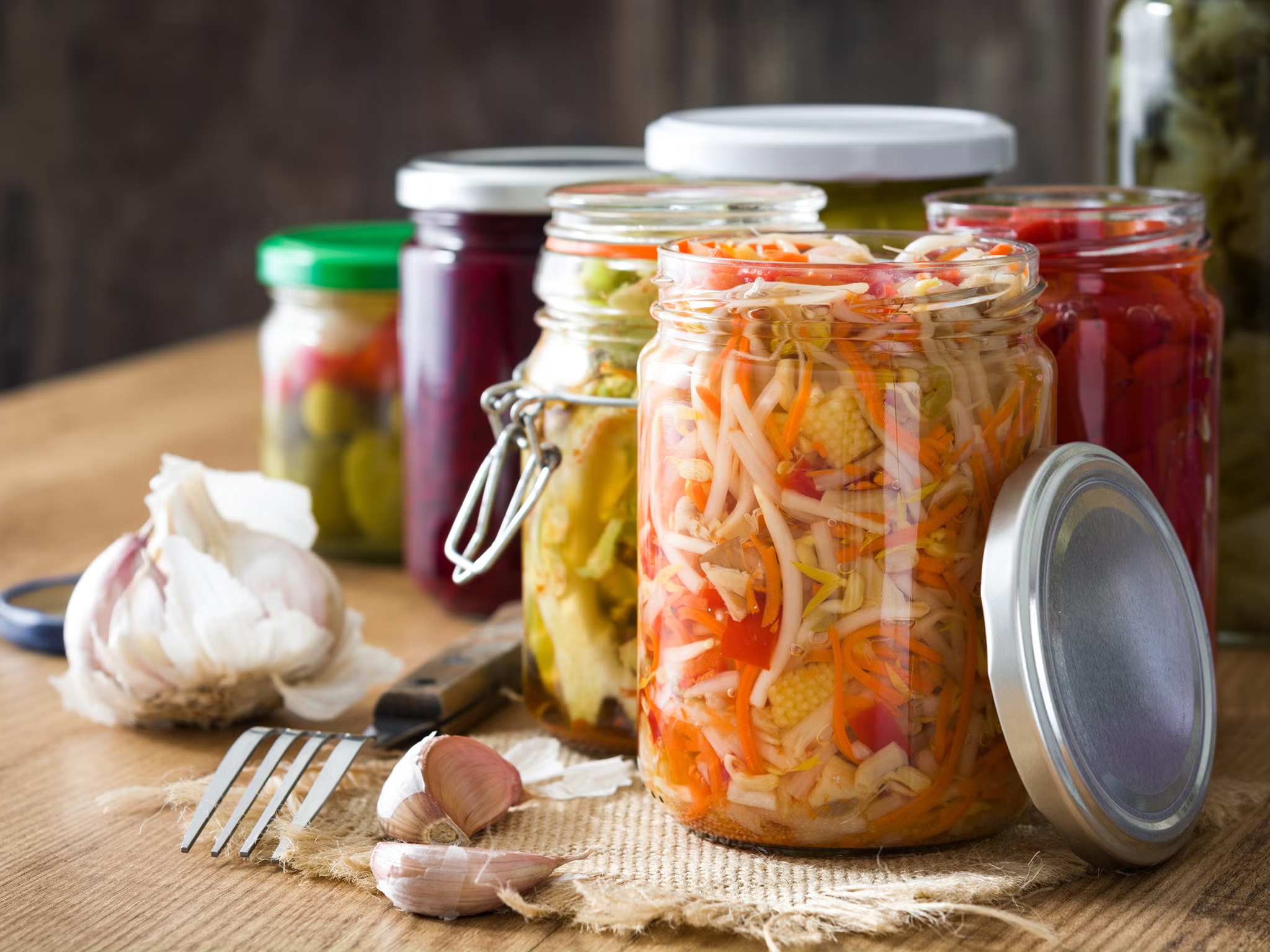The art of fermentation has been around for centuries, transforming simple ingredients into flavorful and nutrient-rich delicacies. From the tangy crunch of sauerkraut to the creamy indulgence of yogurt, fermented foods have become a staple in many cuisines worldwide. But beyond their mouthwatering flavors, these ancient culinary treasures offer a wealth of health benefits that make them truly exceptional.
As we explore the fascinating world of fermented foods, we uncover a realm of probiotic goodness, immune-boosting properties, and a symphony of flavors that tantalize the taste buds. Whether you’re a fermentation enthusiast or simply curious about incorporating these nutritious delights into your diet, this comprehensive guide will unveil the secrets to embracing a healthier, more flavorful lifestyle.
The Probiotic Power of Fermented Foods
At the heart of fermented foods lies a rich tapestry of beneficial bacteria and yeasts, collectively known as probiotics. These microscopic allies play a crucial role in maintaining a healthy gut microbiome, which is essential for overall well-being.
During the fermentation process, these live cultures thrive, breaking down sugars and starches into lactic acid, enzymes, and other compounds that not only enhance flavor but also offer a plethora of health benefits. Probiotics help support digestion, boost immune function, and even promote a positive mood by influencing the gut-brain axis.
Read Also: Tips for Creating a Relaxing Self-Care Routine
A Nutritional Powerhouse
Fermented foods are not only delicious but also packed with essential nutrients that can elevate your overall well-being. The fermentation process often increases the bioavailability of vitamins and minerals, making them easier for your body to absorb and utilize.
For instance, fermented vegetables like sauerkraut and kimchi are rich in vitamins C, K, and B, as well as minerals like iron, calcium, and magnesium. Fermented soy products, such as tempeh and miso, are excellent sources of plant-based protein and are loaded with antioxidants that protect against cellular damage.
Read Also: The Profound Benefits of Practicing Mindfulness Meditation
Exploring the Diverse Flavors of Fermented Delicacies
The world of fermented foods is a global culinary adventure, with each culture contributing its unique flavors and traditions. From the tangy and spicy kimchi of Korea to the creamy and tangy yogurt of Greece, the diversity of fermented delicacies is truly astounding.
In Europe, countries like Germany and Poland boast a rich heritage of fermented vegetables, such as sauerkraut and pickles. Meanwhile, in Asia, fermented soy products like tempeh, miso, and natto are integral to the local cuisines.
Read Also: Disconnecting to Reconnect: Digital Detox Strategies for a More Balanced Life
Comparison of Popular Fermented Foods
To better understand the diverse range of fermented foods, let’s explore a comparison table showcasing some popular options:
| Fermented Food | Origin | Key Ingredients | Health Benefits |
|---|---|---|---|
| Yogurt | Middle East | Milk, Live Cultures | Digestive health, bone strength, immunity |
| Kefir | Caucasus Mountains | Milk, Kefir Grains | Gut health, nutrient absorption, anti-inflammatory |
| Sauerkraut | Germany | Cabbage, Salt | Immune support, digestion, cancer prevention |
| Kimchi | Korea | Napa cabbage, Chili peppers, Garlic | Antioxidants, probiotics, anti-aging |
| Miso | Japan | Soybeans, Rice, Koji Mold | Gut health, cancer prevention, heart health |
| Tempeh | Indonesia | Soybeans, Tempeh Starter | Protein, fiber, beneficial bacteria |
Read Also: Embracing Sustainable Fashion Choices for Everyday Wear
Incorporating Fermented Foods into Your Diet
Integrating fermented foods into your daily routine is easier than you might think. Start by exploring local markets, health food stores, or even your regular grocery store’s refrigerated section for a variety of fermented options.
Yogurt and kefir make excellent additions to smoothies, parfaits, or as a topping for fresh fruit and granola. Sauerkraut and kimchi can be used as condiments or side dishes, adding a tangy kick to sandwiches, burgers, or grain bowls.
Miso paste can be used to create flavorful soups and marinades, while tempeh is a versatile meat alternative that can be sautéed, baked, or crumbled into dishes like chili or stir-fries.
Read Also: Unleash Your Creativity with Upcycled Clothing: DIY Projects for Beginners
Fermentation at Home: A Rewarding Journey
For those seeking a more hands-on experience, fermenting foods at home can be an incredibly rewarding and cost-effective endeavor. With a few simple ingredients and the right tools, you can create your own fermented masterpieces tailored to your taste preferences.
Start with easy projects like fermenting vegetables, such as sauerkraut or pickles, and gradually progress to more complex fermentations like sourdough bread, kombucha, or even homemade yogurt or kefir.
Read Also: Ethical Fashion Brands for Women Over 40: Embracing Style and Sustainability
Safety Considerations and Best Practices
While fermentation is generally safe when done properly, it’s essential to follow best practices to ensure food safety and prevent the growth of harmful bacteria. Here are some key tips to keep in mind:
- Use clean, sterilized equipment and containers
- Follow recipes carefully, ensuring the correct fermentation time and temperature
- Discard any ferments that show signs of mold or foul odors
- Store fermented foods properly, either refrigerated or in a cool, dark place
Read Also: Streamline Your Work Wardrobe: Tips for Building a Versatile Capsule Collection
Embrace the Fermented Lifestyle
The world of fermented foods is a journey of discovery, filled with tantalizing flavors, ancient traditions, and a bounty of health benefits. By embracing these probiotic-rich delicacies, you not only nourish your body but also embark on a culinary adventure that connects you to cultures around the globe.
Whether you choose to explore the diverse offerings at your local market or embark on the rewarding path of home fermentation, one thing is certain: fermented foods will elevate your dining experiences and contribute to a healthier, more vibrant lifestyle.
So, let’s raise a glass (or a jar) to the incredible world of fermented foods and embark on a journey that nourishes both body and soul.

